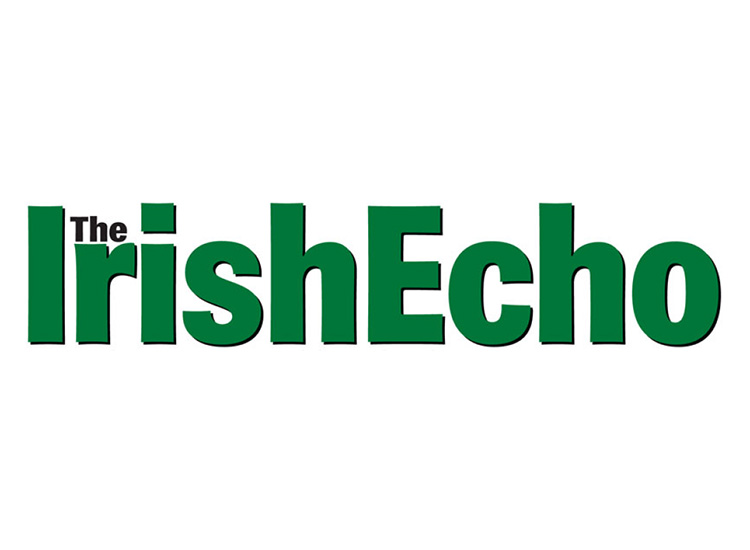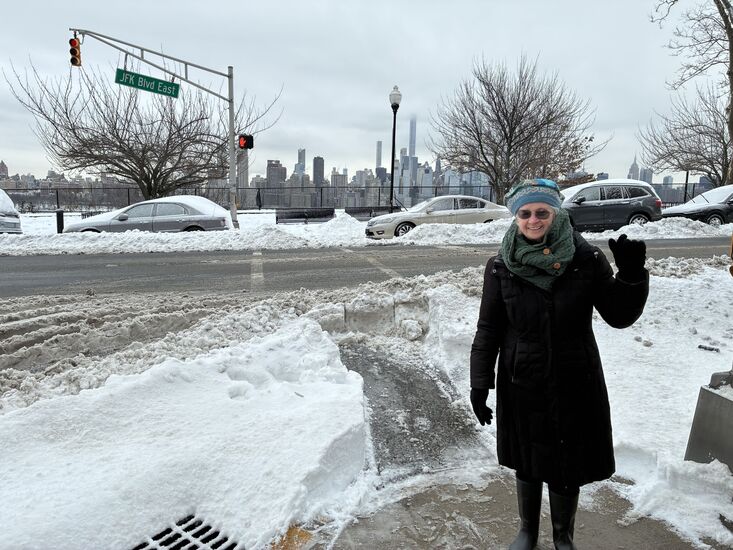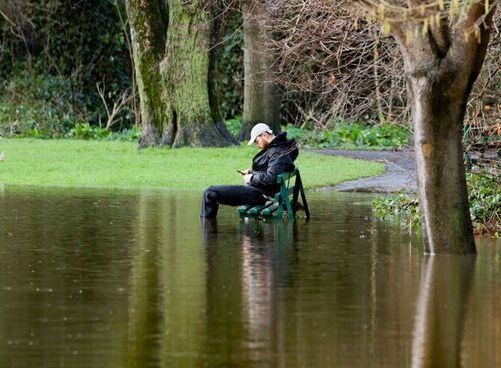Poet Caoilinn Hughes’s debut novel is “Orchid & the Wasp.” PHOTOGRAPH BY DANIJEL MIHAJLOVIĆ
Page Turner / Edited by Peter McDermott
When asked to describe her debut novel, “Orchid & the Wasp,” Caoilinn Hughes pointed to the jacket’s sound-bite: “An unforgettable young woman navigates Dublin, London and New York, striving to build a life raft for her loved-ones amidst economic and familial collapse.”
“When I find myself wincing at sound-bites, I try to come up with one for Dvořák’s 'New World Symphony' and then I feel less embarrassed about having no elevator pitch,” she added.
In any case, since the young poet has entered the novelists’ ranks, lots of writers and reviewers have been offering something better than elevator pitches: unrestrained praise and admiration. The elder statesman of Irish letters John Banville has written, “‘Orchid & the Wasp’ is an ambitious, richly inventive and highly entertaining account of the way we live now.”
“'Orchid & the Wasp,’” said another top Irish novelist, Sebastian Barry, “is making waves because it is fiercely bright and moves like a bullet train."
On this side of the Atlantic, the Pulitzer Prize-winning novelist Anthony Doerr commented: “’Orchid & the Wasp’ is a gorgeous novel told in an onrush of wit and ferocity.”
A lot of attention has been focused on the novel’s central character. "Hughes has created something special in Gael, who is her own woman in a way we don’t see often enough in books: brave, complex, fractured, intelligent, resourceful, ruthless and unforgiving,” said the Irish Times reviewer.
“Gael Foess makes a telling contribution to the unlikeable female narrator debate,” said the Sunday Times, adding, “readers are going to love her."
“Roughly,” Hughes said, resuming her own summary, “it’s a work of literary fiction—a picaresque/family saga/bildungsroman/künstlerroman/novel of ideas mashup—that spans a decade and follows a character from the height of Celtic Tiger Ireland through to the post-crash environments of Dublin, London’s Canary Wharf and Manhattan’s Occupy Wall Street movement. It challenges bootstraps morality, questioning what we owe one another and what we earn, how we can protect our loved ones in a system that is failing them, what makes for a good life, and how events in our lives can turn us into people we never intended to be.”

Caoilinn Hughes
Date of birth: July 29, 1985
Place of birth: Galway
Residence: The Hague, the Netherlands … and airplanes. Right now, I’m in New York for a few months.
Published works: “Gathering Evidence” (Carcanet, 2014) – poetry collection; “Orchid & the Wasp” (Hogarth, July 2018) – novel; “Prime,” a short story published by Granta.
What is your writing routine? Are there ideal conditions?
My ideal working conditions are to be already stuck into a project, and to be up against an externally-imposed deadline. For me, the moment before starting is excruciating and it can go on and on. I procrastinate by reading, which makes it hard to stop, since there’s no such thing as too much reading. I have to reach peak self-loathing before I can get myself to start! But, once I’m going, I work from when I wake up to when I go to sleep, with breaks for runs, bike rides, the occasional movie, poker game, social activity, dental visit, and meal with my patient partner (who does most of the cooking and cleaning). I’m a very slow writer, and I tend to throw out a lot as I go, so that by the time I’m approaching the end of a book, it will only go through editing after that, rather than redrafting. This is perhaps not recommendable, as this is what makes it so hard to get started: the bricks I lay down from the outset have to be laid well and confidently, as they’re the ones that will likely hold the house up years down the line.
What advice do you have for aspiring writers?
To remember that it’s all about the work. If at all possible, forget everything else—whether or not people will ever read it; if they’ll like it or get it (if it does get published); if any agent or editor will root for it; whether or not it’s worth spending years building a “platform” of essays and stories and editorships and networks to help usher your would-be book into the world; etc. This stuff takes up so much of your mental space when you’re working as a writer, and most of it is uncreative and unproductive. It’s so far away from the work itself, and the work is all that matters: that you do it honestly, stalwartly, and better than you thought you could.
Name three books that are memorable in terms of your reading pleasure.
“Ragtime” by E.L. Doctorow; “On Beauty” by Zadie Smith; “The Sellout” by Paul Beatty.
What book are you currently reading?
I can’t tell you what books I’m currently reading (I simultaneously read many books) as I might not love them! But I have just finished “The Mars Room” by Rachel Kushner and it is superb. I’m soon to start Hernan Diaz’s “In the Distance,” which was published by a teeny indie press and found its way onto the Pulitzer shortlist. I also had a trusty recommendation recently of Noemi Lefebvre’s “Blue Self-Portrait,” which sounds like my cup of Barry’s.
Is there a book you wish you had written?
Lorrie Moore’s “Birds of America.”
Name a book that you were pleasantly surprised by.
I was pleasantly surprised by how bad one of Beckett’s novels was when I pulled it off the library shelf recently! It was one I’d never heard of, and I imagine you wouldn’t have either. It was so reassuring to be reminded that even great writers have bad days!
If you could meet one author, living or dead, who would it be?
That depends on whether or not I could have any effect on their actions. Presuming I couldn’t, then Mary Wollstonecraft Shelley.
What book changed your life?
It wasn’t one book, but “The Master and Margarita” by Mikhail Bulgakov was one of the first novels I read that blew my mind. And Yevgeny Yevtushenko’s “Collected Poems.”
What is your favorite spot in Ireland?
Omey Island, Connemara.
You're Irish if...
You have very strong feelings about Barry’s versus Lyons. … teabags, that is.







